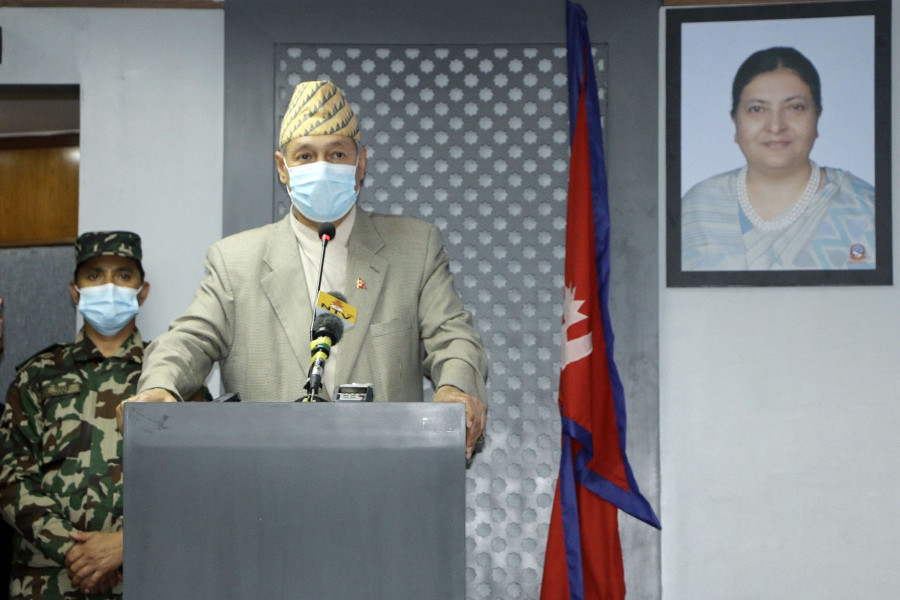National
District administrators authorised to issue prohibitory orders
Chief district officers of Kathmandu Valley meet to decide the restrictions in view of rising coronavirus cases.
Post Report
The government on Tuesday granted discretionary powers to chief district officers to impose prohibitory orders or even a curfew in their respective districts to contain the spread of the coronavirus.
Following the decision, the chief district officers of Kathmandu Valley have met to finalise the modality of the prohibitory order.
“The chief district officers can also use the provisions of the Local Administration Act (2028),” said Finance Minister and government spokesperson Yubaraj Khatiwada, during an announcement of Monday’s Cabinet decisions.
The government has decided that the districts, in which a prohibitory order has been imposed, would require both government and public offices to use a minimum number of employees at offices and to make arrangements for the rest of staff to work from home.
The discretionary powers also allow the chief district officers to take necessary measures to contain the Covid-19 situation as per Clause 2 (2) of the Infectious Disease Act-1964 in coordination with the District Corona Crisis Management Centre.
The government decision comes amid a record number of 1,016 new infections on Tuesday, the highest daily spike in Covid-19 cases, as the national tally reaches 28,257.
The Kathmandu valley, according to the Health Ministry, also reported 205 new cases, the most single-day infections, while seven people died due to Covid-19-related complications.
“We are preparing to impose prohibitory orders. We will enforce them allowing people a certain timeframe to settle their essential movements,” said Hum Kala Pande, chief district officer of Bhaktapur.
On August 14, the local administration offices, in the wake of the new situation, had imposed restrictions on various activities and services in the Valley.
Restaurants were limited to takeaways and deliveries while all festival gatherings and public functions in open spaces had been banned.
Public health experts, however, have long argued that more restrictive measures, together with increased testing and tracing, are required if the chain of virus transmission is to be broken.




 9.89°C Kathmandu
9.89°C Kathmandu













